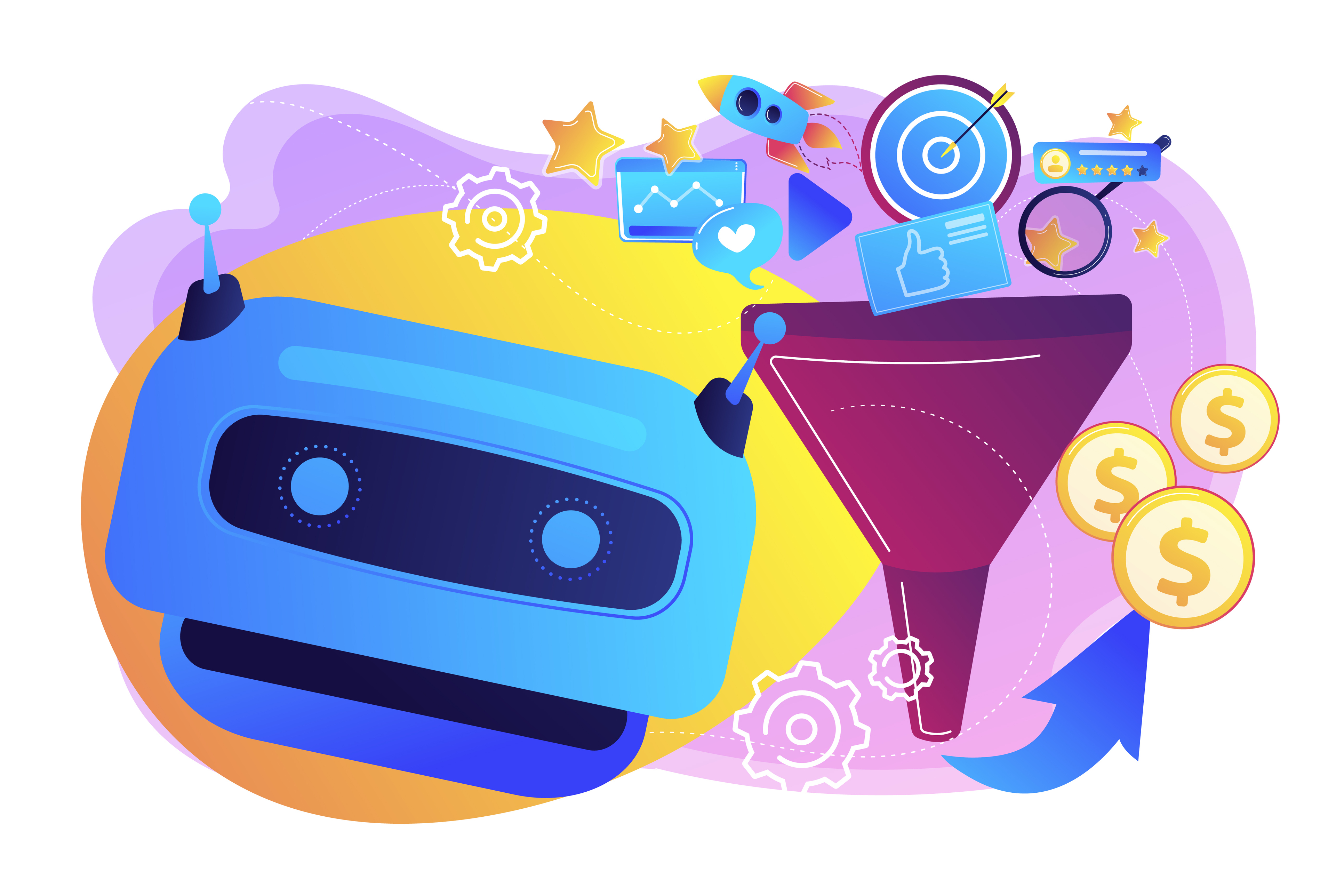November 6, 2019
 by Andrej Kovačević / November 6, 2019
by Andrej Kovačević / November 6, 2019

For businesses, success or failure can be traced to a variety of factors.
None of them, though, have a bigger overall impact than the ability for the business to generate sales leads. For that reason, most companies spare no effort or expense in their quest to find and convert new prospects into paying, long-term customers.
In the past, that typically meant investing in a large sales force and bankrolling networking events, direct mail campaigns, and countless hours of cold calling. Then, the internet came along and changed everything.
For the first time, businesses could stay in constant communication with sales leads and send them targeted marketing messages at will. They could create multifaceted digital lead generation efforts by leveraging online content, social media posts, emails, and countless other digital channels to get their brand in front of the maximum number of potential customers.
The only problem was that the shift to digital created so many new lead generation channels that it has overwhelmed the average business. The large sales teams of the past have been supplanted by large digital marketing departments, consuming an ever-larger slice of business budgets.
Now, however, the growth and development of artificial intelligence (AI) technology is starting to re-balance the scales a bit. New lead generation and management tools that help businesses to enhance and automate many of their processes are taking the market by storm – offering critical assistance in this most critical of business functions. As a primer, here's an overview of how AI can enhance business lead generation efforts.
To understand how AI can be a game-changer for business lead generation, you must first understand what AI can do that humans can't. Put simply, AI, as a technology, can manage and analyze data sets that include multiple data sources and that arrive in real-time. It can make sense of and derive insight from that data with a level of specificity that humans can't match.
It's because we're susceptible to information overload – where we become unable to synthesize information into coherent, useful ideas once our ability to absorb new data is overwhelmed. For an AI, there's no such thing as an attention span – only throughput capacity – which means they can take in as much data as their hardware allows. When that limit is reached, all that's required is an upgrade.
AI is also quite adept at multitasking. An AI system can manage multiple detailed tasks simultaneously without making mistakes. Humans, on the other hand, can't really multitask, despite what many believe. When we try to multitask, our brains have to take time to refocus each time we shift from one activity to another. An AI, by contrast, can work on and complete multiple tasks at the same time, with no shifting required.
From a lead generation perspective, these two abilities are critical. They mean that AI has the power to finally make use of all of the information that businesses have at their disposal to identify leads, and can execute many parts of the lead acquisition and development cycle with no human intervention – managing leads at various stages of development at the same time.
Although we're still in the earliest stages of AI development, there are already a variety of real-world applications for the current technology in the lead generation process. The success of the technology so far is part of the reason that a McKinsey study predicts that AI is going to add as much as $2.6 trillion in value in the sales and marketing arena in the coming years. Right now, though, the most important ways that AI can enhance business lead generation efforts is in the following areas:
One of the key tasks that today's sales and marketing experts have to accomplish is to find ways to understand existing leads so as to figure out how to best engage with them. In the past, much of this work happened based on personal instinct (like the old-school salesman's gut feelings). Today, the process is all about data.
It's now possible to develop a profile of an individual lead based on any number of available data points. Those might include the person's social media posts and browsing habits, their purchasing history, and even the kinds of photos they gravitate toward. For most companies, however, it's their own CRM systems that hold the keys to better lead development.
A perfect example of this in action is Einstein, the AI solution built into the Salesforce CRM platform. It provides an automated lead scoring function to let business know which leads have the highest probability of conversion based on the data about them contained in the system.
 The scores accomplish two things. First, they let staff know which leads to concentrate on, thereby improving efficiency. Second, they identify leads that may need some more outreach to get them closer to converting, and what kind of outreach might work best.
The scores accomplish two things. First, they let staff know which leads to concentrate on, thereby improving efficiency. Second, they identify leads that may need some more outreach to get them closer to converting, and what kind of outreach might work best.
Yesterday's businesses faced difficulty in keeping their lead pipelines full, but today's businesses seem to have so many leads that they let a majority of them fall through the cracks. That seems to be because there are only so many leads that human staff can engage with at any given time. That's bad for business, as following up with leads is one of the surest ways to grow sales.
This is yet another area where AI can and is already making a world of difference. Companies like Conversica and Exceed.ai now use AI to power automated lead engagement via email, SMS, and online chat to make sure no potential sales lead goes cold. They're not using canned messages, either.
The underlying AI in these tools use natural language processing to hold real conversations with leads and to formulate responses that help move them along the sales funnel – leading up to interactions with live sales representatives when they're already primed to convert.
When it comes to lead generation, even though digitization has dramatically increased the flow for most businesses, you can never have too much of a good thing. To find new leads, though, is a labor-intensive process that most companies avoid unless their pipelines are running dry. AI can change that, providing a means of identifying new leads based on the available data without tying up valuable marketing or sales manpower.
Companies like Node are providing AI solutions that can mine existing customer data to identify related leads. It scours the internet looking for people, businesses, and products that could link existing customers with potential new ones, producing pre-qualified prospect lists that sales staff can use as a starting point. Its best use, however, is in tandem with other AI solutions such as the engagement platforms mentioned above – to create fully-automated lead generation and development processes that culminate in new business.
Today's consumers have grown tired of sales and marketing messages engineered to reach the broadest possible audience. They want personalization, and they reward the companies that provide it. In fact, recent research has indicated that 80% of consumers are more likely to make a purchase when a business provides them with a personalized experience. The same holds true when it comes to lead generation. For that reason, mass emails, recorded phone calls, and one-size-fits-all content don't work very well any more.
That's where AI comes in. An excellent example comes from OneSpot, which uses AI to help its customers personalize online content on-the-fly as customers and potential leads consume it. It can, for example, display hyper-relevant content to website visitors, based on a profile of their browsing and previous content consumption habits.
It can also target specific users with advertising meant to drive them to the business's website, where they can be engaged with available marketing content. This creates a new pool of leads that are already engaging with the business without any additional intervention from sales and marketing staff.
Just based on the current generation of AI technology, it's clear that it is the future of the business lead generation process. It can already serve as a vital force-multiplier at several critical stages of lead generation, and in many cases can do it at a cost that would fit on a typical small business credit card.
Even at this early stage, businesses have no shortage of options to deploy AI solutions to enhance their lead generation efforts, and those options are getting better all of the time. Going forward, AI is going to take on a bigger and bigger role in business lead generation, but the smartest business leaders aren't going to wait for it to happen – they're embracing it right now.
Learn more about all things AI when you check out our artificial intelligence knowledge hub, chock full of over 50 useful resources.
Andrej is a digital marketing expert, editor at TechLoot, and a contributing writer for a variety of other technology-focused online publications. He has covered the intersection of marketing and technology for several years and is pursuing an ongoing mission to share his expertise with business leaders and marketing professionals everywhere.
Artificial intelligence (AI) is becoming ubiquitous in our everyday lives.
 by Jaakko Pasanen
by Jaakko Pasanen
In an age when modern marketing dominates content and conversations, tried-and-tested tactics...
 by Michael McGoldrick
by Michael McGoldrick
The surefire, tried-and-true trick to increasing your pop-up conversions is simpler than you...
 by Greg d’Aboville
by Greg d’Aboville
Artificial intelligence (AI) is becoming ubiquitous in our everyday lives.
 by Jaakko Pasanen
by Jaakko Pasanen
In an age when modern marketing dominates content and conversations, tried-and-tested tactics...
 by Michael McGoldrick
by Michael McGoldrick


